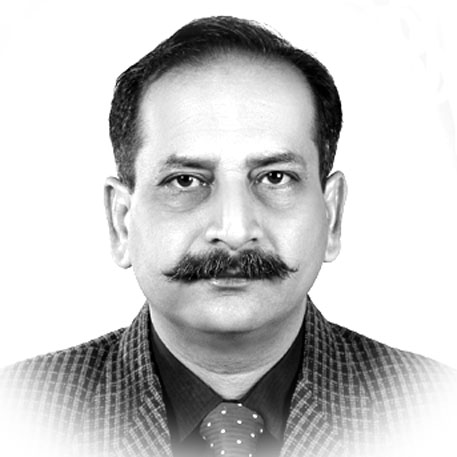Ali Sukhanver
IT is very much true that the Kashmiris of the India- occupied Kashmiri could not succeed in winning the expected and required support of the so-called Muslim brotherhood except that of Pakistan; but at the same time it is also very much true that they are getting the strongest support from the Sikh community all over the world. Recently when the Modi government imposed restrictions on phone and internet services in Jammu and Kashmir, just to counter the protest processions of the local people, a group of 32 Muslim girl students from Srinagar was on a visit to Pune. Because of the restrictions imposed on all communication tools, the girls lost all contact with their families. They were facing shortage of money too as their tour could not be completed within the planned period. So these girls approached the Sikh Gurudwara Committee in Pune for help. The members of Gurudwara Committees in Pune and Delhi joined hands to arrange for their safe return to their homes. The Pune Committee arranged for their air-tickets to Delhi and from there the members of another Gurudwara committee arranged for their transportation to Srinagar.
The Sikh community is providing a marvelous support to the people of Kashmir in all possible ways. An article of Rajeev Khanna was published in The Citizen in the second week of August with the title ‘Punjab Comes Out in Strong Support of Kashmiris’. The article says, ‘One state that is vociferously raising its voice in support of the people of Jammu and Kashmir after the abrogation of Articles 370 and 35-A by the central government is neighbouring Punjab. Right from the government to various political organizations and civil society activists and organizations both in India and abroad, there has been opposition to the step taken by the Centre, particularly the manner in which it was done by silencing the voice of the Kashmiris’.
Same level of support and care for the Kashmiris from the Sikh community is being observed all over the world. Analysts are of the view that this support is reciprocal; it is an outcome of a mutual understanding between the Kashmiris and the Sikhs. This year in the month of March a protest was arranged by a host of Sikh organizations in central London. The protesters were seeking release of Sikh prisoners in Indian jails. They also demanded end of atrocities against Sikhs and Kashmiris by the Indian government. The protest procession was joined by a large number of Kashmiri groups also who had flags of Kashmir and Khalistan in their hands. Media reports said that the protest was very much calm and peaceful but later on it turned violent as a pro-Modi group arrived at the scene and started shouting abuses at the peaceful protesters. At least three people injured and two arrested by Scotland Yard.
Harbinder Singh is a Sikh businessman from Srinagar. He said talking to the Reuters, “There is a big problem; it’s not a small thing that (special status) has been revoked. We are extremely disappointed.” President of the All Parties Sikh Coordination Committee, Jagmohan Singh Raina also expressed his concern over the present situation in Kashmir in a recent statement. He said, “They have committed a big blunder; they could have changed laws, but at least they should have consulted us.” He further said expressing his grave fears for the future of the Kashmiris “We Kashmiris didn’t have much, we just had this special status, and now this is also taken from us. This will mean that our people will find it hard to get jobs here.” According to a report, the Sikhs are just 2% of the total population in the India-occupid Kashmir but are spread across the state.
From farming and government services to running bakeries and provision stores, they are engaged in all types of social and economic activities. They have a very cordial relationship with the Muslims and interestingly the illegally deputed Indian forces treat them with the same brutality and cruelty with which they treat the Muslims. In short their common sorrows and joys and their common enemy has merged them into a single identity. This Muslim-Sikh unity is not limited only to the India-occupied Kashmir; all over the world the Sikh community is providing all possible support to the Kashmiri Muslims and same is the behaviour of the Muslims with the Sikh community.
The Sikhs and the Kashmiri Muslims both are a pain in the neck of the Modi Sarkar. The Modi government is very much misguided by its own created notion that by depriving Kashmir of its special status, it would succeed in crushing the demand for an Independent Sikh state Khalistan and that for an Independent state of Kashmir. The Modi government must keep in mind the fact that no independence movement could be crushed with the help of such silly actions. Neither the Muslims nor the Sikhs in Kashmir are like a ready-to-eat soft cake placed in show-case of some bakery. If it was so easy to swallow them, the Modi government would not have imposed such a long curfew in the valley. The ongoing protest in the IoK in itself is a proof that the Kashmiris and the Sikhs there are not going to put down their guns till they succeed.
—The writer is freelance columnist based in Multan.









